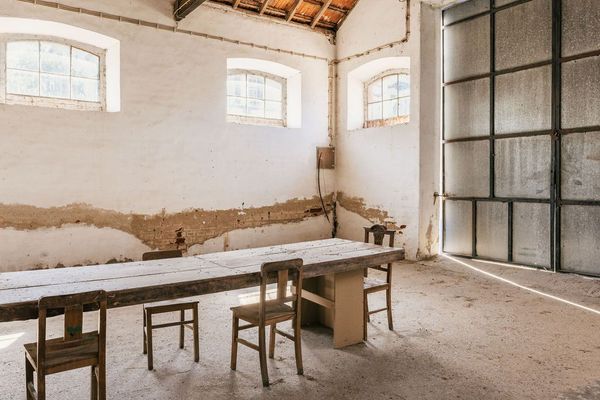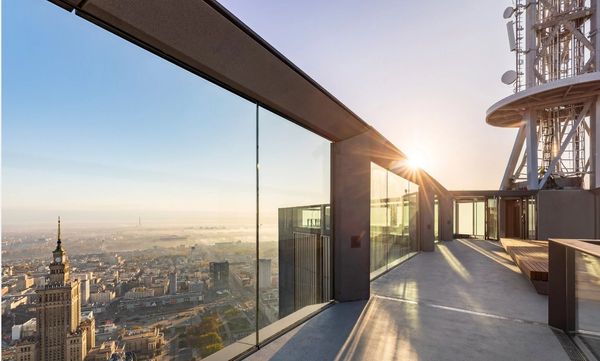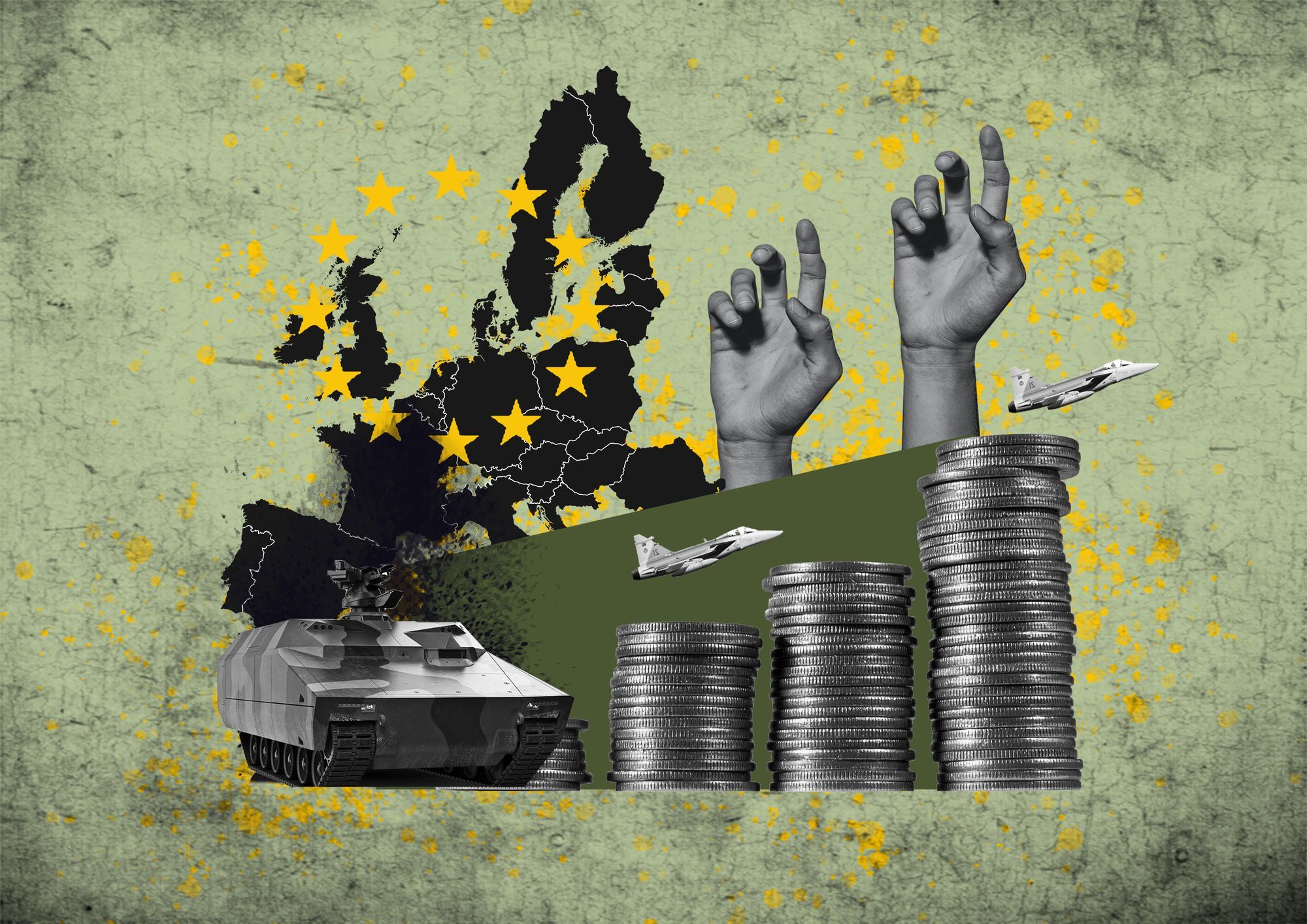„We still debate history as our reality.”
Once known as the powder keg of Europe, many things changed in the Balkans, but the challenges remained. EU integration, the Russo-Ukrainian war, and the Bosnian and Bulgarian elections are crucial issues at the moment, shaping the Balkans’ future. The Mathias Corvinus Collegium (MCC) organized a conference on these topics with the participation of experts who have first-hand experience of what it means to live in the Western Balkans and what the reasons for the region’s (in)stability are.
The participants of the first panel were Rajko Petrović, a researcher at the Institute of European Studies in Belgrade, Senada Šelo Šabić, a researcher at the Institute for Development and International Relations in Zagreb, and Ferenc Németh, a research fellow at the Institute for Foreign Affairs and Trade (IFAT) in Budapest; they discussed the recent political developments in the region and the Russo-Ukrainian war’s implications. The Serbian expert said that the potential escalation of the war would significantly affect the Western Balkans and underlined that Serbia is the only country that aspires to EU integration but did not impose sanctions on Russia. He believes this contributes to political instability, as the EU has made it clear that Belgrade’s foreign policy should be harmonized with Brussels’ goals. Petrović discussed the issue of high inflation too, which is currently approximately 14% in the country, making life burdensome for Serbians. He added that Serbia is virtually in global spotlights, as it is not sure whether Belgrade will keep its strong ties with Moscow or choose the Western political alliance.
The next speaker was the Croatian Šelo Šabić. She said that the Russian invasion of Ukraine means radical changes to Europe and added that Croats can only hope that the war that started in Ukraine will also end in Ukraine. The researcher stressed that Putin’s regime attacks not only Ukraine but the whole of the West. However, the opinion of Croatian political actors is not unanimous; there are even official statements that undermine Zagreb’s support for Kyiv. She believes that as an EU and NATO member Croatia is obliged to take some responsibility. Croats would expect protection and solidarity if they were in the shoes of Ukrainians. It is not a good argument to avoid the responsibility that the country is small and has only a marginal role in global politics. Invisibility is not an option in the long term – she added. Šabić repeatedly highlighted the importance of responsibility and said it is a naive approach that the EU still acts as if everything would return to normal soon. She argued that Europe needs a more accountable and powerful leadership as the US might not always be there to protect us. The researcher thinks the war’s outcome will probably affect the balance of power in the Western Balkans. Serbia is part of the European community, but Belgrade’s foreign policy is not committed to one direction yet. Šabić believes this strategy will not be sustainable anymore.

Németh agrees with the EU’s response to the Russo-Ukrainian war but sees the Western Balkans’ stability situation unchanged. Russia is present in the region, many middle-class Russian citizens emigrated to Belgrade recently, and many young Russians work in the IT sector from Belgrade, which boosts the local economy. He stressed that the Russian invasion is not the only cause of the energy crisis; the region already experienced it before the 24th of February due to the coronavirus pandemic and other root causes. Németh added that the Balkan countries are on the right track to diversifying the sources for their energy needs, but it is a lengthy process.
The second topic discussed was the region’s challenges beyond the war. Németh said that there are many structural problems in the Western Balkan countries, and it is not enough to focus on preventing armed conflicts. Economic development, investment, resilience, and flexible institutions are needed in the region to handle potential political crises. The research fellow highlighted two pressing problems. Firstly, the brain drain, the emigration of highly educated and skilled people, is significant in the region. Secondly, population decline is also a crucial issue. Németh believes the governments in the region are not tackling these problems at all.
Šelo Šabić continued and agreed that emigration is a significant problem in Croatia. She said that the birth rate is low, attracting skilled people to move back to Croatia is not working, and motivating young people to have more children also fails. Šelo Šabić thinks that none of the trends can be changed. Welcoming immigrants is not a feasible option to stop population decline in these quite conservative countries. The number of immigrants in the region is not high; still, immigration is a sensitive topic for the Western Balkans. Šabić mentioned another shared problem in the region: the lack of political renewal. The same faces have dominated the political landscape for decades, which is not favorable. „We still debate history as our reality,” - she added. People are leaving the region not just because of financial difficulties; political reasons and the lack of hope for a better future also contribute to emigration.
Petrović addressed the problems Serbia faces and stressed that the region could not experience stability and development if its largest country is not stable. He added that the war actually just accelerated the pre-existing difficulties. Immigration is one example, a new wave of immigrants is expected to reach the region, but it will be different from the previous waves as people will come mainly from Russia and Ukraine instead of the Middle East. Petrović confirmed Németh's earlier statement that many Russian and Ukrainian citizens are already in the Serbian capital. He believes this trend can be problematic, as raising housing prices will cause a problem, for example, for students. The Kosovo issue is another challenge. The situation is complicated as Russia could potentially justify its position regarding Ukraine with the example of Kosovo. Lastly, Petrović mentioned the challenges of Serbia’s foreign policy, which puts Belgrade in a problematic situation. Serbs are strongly divided about whether the country should be a „new Belarus” or join the Western alliance. Only 40% of the population supports EU membership, and 80% is against any sanctions imposed on Russia. The researcher added that a large part of Serbian society is reacting to the Russo-Ukrainian conflict on an emotional basis and thinks that Russia is fighting against the „evil” without any conscious considerations. Petrović thinks Russians know well the dynamics of Serbian society; thus, they can easily trigger these feelings in Serbs.

Regarding EU membership, Šelo Šabić said that she hopes Croatia's EU membership will serve as a stabilizing factor and a positive example for the region. Nonetheless, she believes the further enlargement of the EU is not on the table now. She sometimes feels that the EU actually wants Serbia’s membership more than Serbia itself, and this asymmetric relation is not beneficial. She added that security policy should be the top priority as no state can fear being invaded by another. According to Németh, EU membership is the only viable option for the region's countries.
At the second panel of the event, the focus shifted to Bosnia and Herzegovina, another country in the Balkans. Elections were recently held in the country, and Jasmin Hasanović and Osman Sušić, two professors from the University of Sarajevo, discussed the developments with Harun Karčić, a broadcast journalist for Al Jazeera Balkans. Firstly, Hasanović said that the results of the general elections held on 2 October are still not official, and it is unclear who will be the members of the Presidency of Bosnia and Herzegovina due to allegations of voter fraud. The Bosnian political system is complex; power is shared between ethnic groups. Therefore, the professor describes the country as an ethnocracy rather than a democracy; ethnicity is the main basis of Bosnian politics. He added that the power is apparently not concentrated in the voters’ hands; those who control it count the votes, leading the country towards illiberalism. In contrast to other European countries, illiberalism or authoritarianism is not implemented at the state level but at the level of ethnic groups. Harun Karčić said that Russian influence is strong in Bosnia and Herzegovina. Besides the political arena, businesspeople or the Serbian Orthodox Church can also work for Moscow’s interests. Russia wants to be present in the West through the Balkans, and Bosnia and Herzegovina borders two NATO members, Croatia and Montenegro. „If Kyiv had fallen, Bosnia would already have been at war,” - Karčić said, adding that it is only because of the high level of Western support and Kyiv’s resistance that Bosnian Serb leader Milorad Dodik refrained from further action. But he has not given up his plans yet.

Bulgaria was the topic of the third panel; the discussion concerned the short-lived government led by the centrist „We Continue the Change” party and the challenges Bulgaria currently faces. The participants were Neli Kirilova, a researcher at the European Security and Defense College and Corvinus University of Budapest, and Mariyan Sabev, an analyst of the Center for the Study of Democracy in Sofia. Kiril Petkov was elected as Bulgaria’s prime minister in 2021, but his government lost a vote of no confidence in 2022 summer, meaning the fourth parliamentary election should have been held since 2021 spring. Kirilova somewhat humorously noted that it seems Bulgaria does not share the problem of other Balkan countries where governments never change. The expert said that protests started in the country in 2019 because of the high level of corruption, among other things, threatening the then ruling party, GERB. But due to the coronavirus pandemic, the demonstrations must stop. Sabev talked about the aims of Petkov’s party, which led the short-lived coalition government. The priorities for the leader of the „We Continue the Change” party, who was prime minister from winter 2021 to summer 2022, were to fight corruption and implement judicial reforms. According to Sabev, both promises have been fulfilled to some extent. Regarding the current crisis, Kirilova said that the priority is to survive the winter as Bulgarian salaries are too low for the skyrocketing energy prices. As a second priority, she mentioned the importance of defense. In addition to the military, the focus should also be on energy, food, and information security and ensuring an adequate water supply for Bulgaria. Sabev deems the future is more positive. He believes Bulgarian society can easily cope with the coming winter thanks to its reserves. However, he added that in peacetime, Bulgaria might have a Janus-faced foreign policy, but now, in times of war and crisis, and without a new government, Sofia cannot play with fire.
Graphics: Réka Pisla

A former pasta factory awaits restoration in Portugal

EU’s tallest building inaugurated in Warsaw










